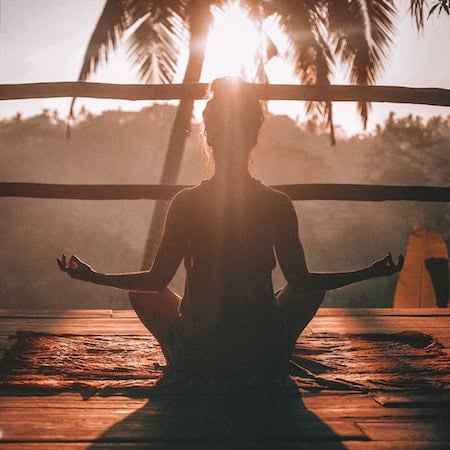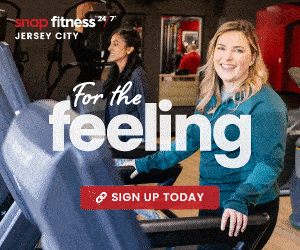Stress levels are particularly high right now and you may be feeling more on edge than usual. Needless to say, the news and constant updates about the status of COVID-19 in the world and our immediate environment are enough to send anyone into a spiral of fear, anxiety, and feeling out of control.
Because we are creatures of habit, when our routines are disrupted and our usual support systems aren’t in place, our body and mind may begin to respond as if there is something wrong. Sometimes, that “something-is-wrong” feeling manifests in anxiety or a sense of panic. Luckily, Dr. Yesel Yoon, a local licensed clinical psychologist is here to help and share some tips to manage anxiety and stress during this time.

Find Out Why You’re Feeling a Certain Way
Anxiety is your body’s natural response to stress and some level of stress is actually helpful. Having some degree of anxiety over COVID-19 is what mobilizes us to listen to medical advice, to wash our hands and sanitize more diligently, and to check in on our loved ones and make sure people are okay.
But sometimes our stress responses can feel like more than just that and increase in intensity more so than you would like or feel like you can handle. When it starts to feel out of proportion to the situation at hand, that’s when anxiety is no longer as helpful and may begin to feel a bit more like panic and chronic stress. This can take a toll on our emotional, physical, and mental health.
Some signs that cue that you may be having an anxiety attack {also known as a panic attack} or acute stress response include:
- – Shallow and/or rapid breathing
- – Racing thoughts
- – Agitation in your body
- – Not being able to shake the feeling like something is wrong
- – Sweating excessively
- – Changes in your eating and sleeping patterns
How to Control It

Emotions come and go in waves. Some of these waves can feel like they come on in sudden spikes but most have a gradual rise and fall. Our ability to regulate these ups and downs is called “emotion regulation” and we all have certain emotion regulation skills and strategies that we have been using whether we know it or not. But during this time of immense stress, it bears reminding you of some strategies for coping with strong waves of anxiety.
During a time of panic or high anxiety, think of your emotions as being on overdrive like your foot is on the accelerator. What you need is to get back to baseline.
See More: How to Enhance Your Self-Care Routine in a Pandemic
The following are some easy to apply, relatively quick, and very effective strategies to help you get back to baseline during a moment of panic or high levels of intense anxiety:
Change Your Body Temperature
When you are upset and anxious, your body temperature and heart rate rise. This really quick, somewhat unusual but highly effective intervention will help you by bringing down your resting heart rate and body temperature. This sudden shift in temperature helps you come down both physically and emotionally.
All you need is a large bowl with cold water or an ice pack {or bag of frozen veggies}:
Hold your breath while putting your face under the cold water, as far as your temples. Try and stay in the water for at least 10 seconds Or, hold an ice pack on your eyes and cheek area for 30 seconds while holding your breath.
Why it works: You are inducing the “dive reflex” {like a diver going underwater. It lowers your heart rate to below its normal resting rate. {Disclaimer: Do not try this if you have any heart problems without your doctor’s permission.}
Intense Exercise
While it seems a little counterintuitive to amp yourself up through intense exercise, you can match your intense feeling with your physical state. You are actively getting the nervous energy out of your body.
Why it works: This will help your anxiety go down and your level of endorphins and positive emotions will come up. You can do this in the comfort of your own home through jumping jacks, running in place, or if you can get out, take a quick jog or do some HIIT exercises.
Paced Breathing
There’s a reason why you hear the common advice to “take a deep breath” when you’re upset. When we breathe out, our bodies relax. When we’re more panicked or excitable, our breathing gets shallower and shorter. So, you want to focus on breathing out longer than you breathe in. Try utilizing these tips:
- Silently count the number of seconds {or keep a timer in front of you} for each in and out breath.
- Start by inhaling deeply through your nose for four counts, then breathing out deeply out through your nose or mouth for five counts. Repeat several times.
- You can extend the number of seconds for in- and out-breaths, just be sure to breathe out for longer than your in-breath.
You can use this anytime, anywhere. You’re breathing anyway! So use it as a superpower to calm your body at any moment.
Other Tips

Reduce exposure to the “accelerators” in the environment:
- – Reduce the time you spend reading or listening to the news or mindlessly engaging with social media. Stay informed by selecting one or two reliable and trusted sources and keep your updates to a minimum {ideally one to two times a day or something that’s more reasonable for you}.
- – Minimize contact with people who tend to stress you out and amp up your worries and anxieties {you know who they are}.
Read More: Busy Bee Organics Owner Michelle Berckes Shares Her Quarantine Tips
Increase exposure to the “decelerators” in the environment that help bring you to baseline:
- – Keep engaging in the things you do enjoy to the maximum amount you can.
- – Listen to calming music or sound effects.
- – Light your favorite scented candle.
- – Take longer baths or showers.
- – Engage in slower and mindful activities like reading, writing, stretching, or yoga.
- – Engage virtually with the people in your life who bring you joy.
Keep Getting the Support You Need
Right now is all the more important to double down on your self-care strategies and practices. You also don’t need to go at this alone. Many healthcare professionals including psychotherapists are offering remote services because of self-quarantine measures. Feel free to reach out and connect to a mental health professional for additional support during this time.
Which of these techniques will you be utilizing? Let us know in the comments!

Did you know: We started a podcast about all things news and lifestyle in Hoboken + Jersey City! Listen to the latest episode of Tea on the Hudson here and subscribe.
We release new episodes every Tuesday!










